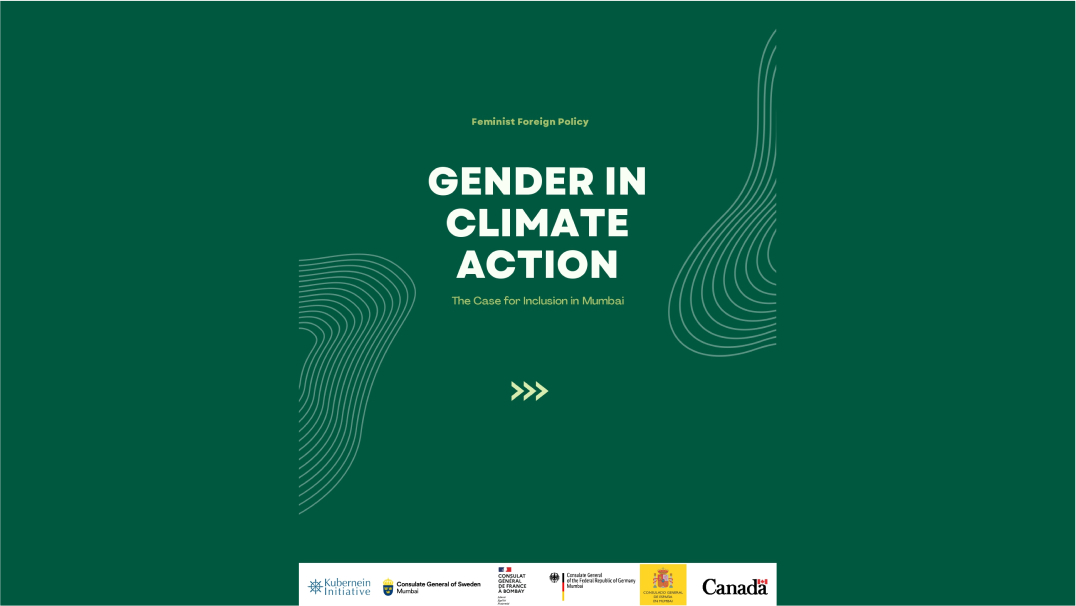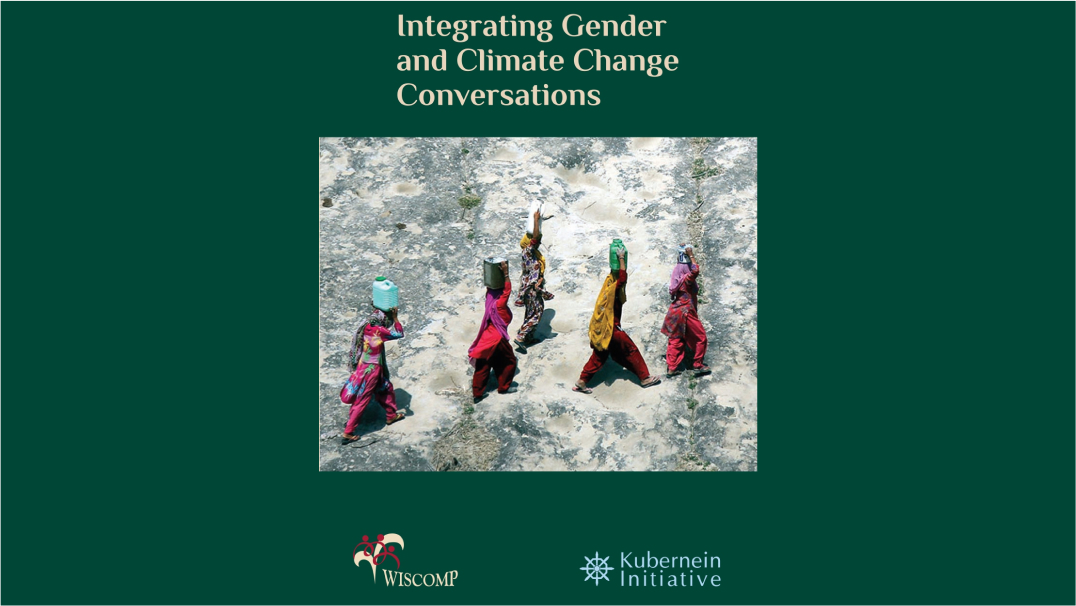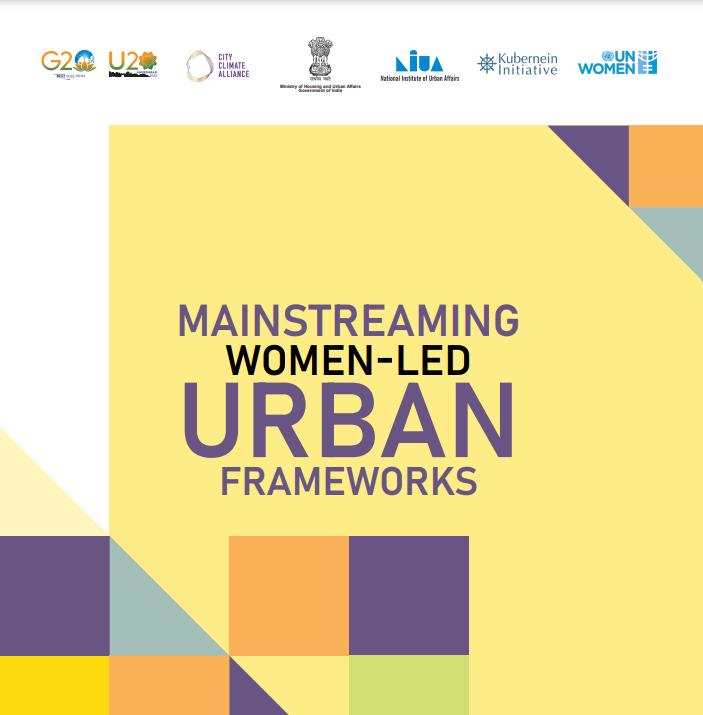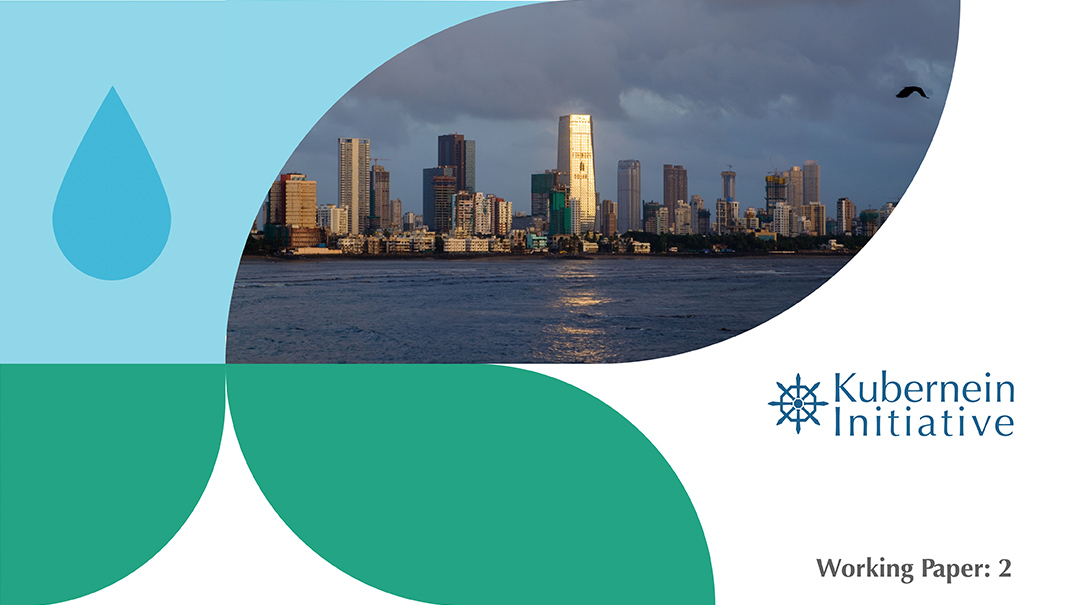Through this brief, we present the significance of linking gender and inclusion with climate action at the city level in India. We offer ideas focusing on Mumbai – the financial capital of India, a coastal city, and the first Indian city to develop a climate action plan. The perspectives presented are a result of knowledge and research from Kubernein Initiative and ideas shared at the conference ‘Collaborative Conversations around Gender in Climate Action’ held in September 2022. Read about the conference here.
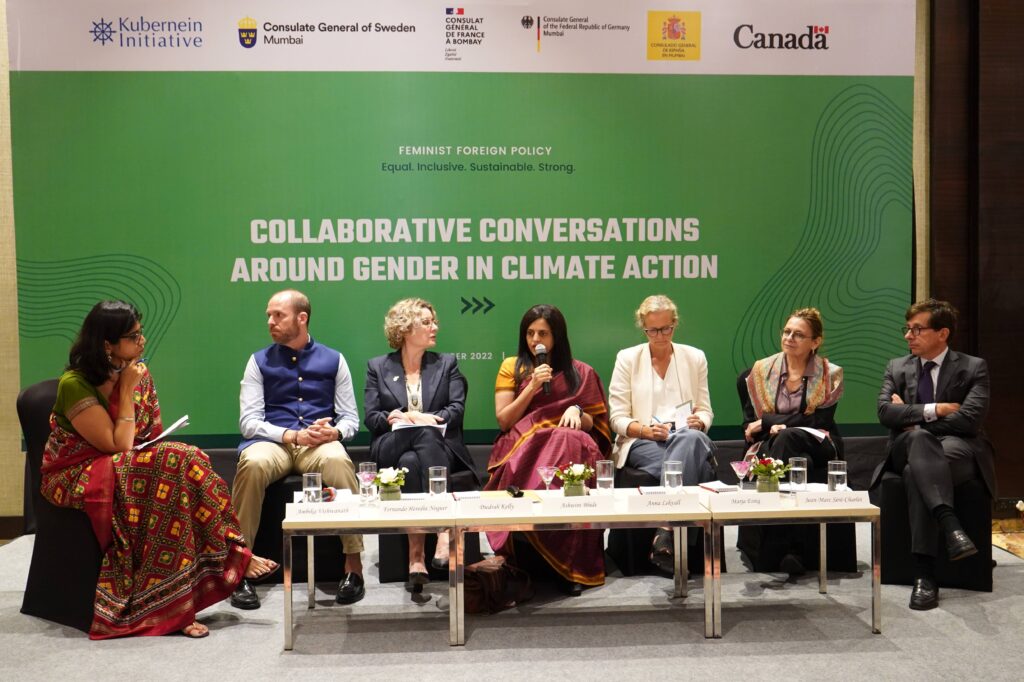
The concept of Feminist Foreign Policy (FFP) underscores that a more inclusive foreign policy can be an effective tool to deal with new and emerging challenges, a key one being climate change.
While a FFP is not a panacea for existing challenges, it offers a new form of thinking and a wider lens that ultimately offers innovative solutions. The FFP additionally takes into consideration marginalised and other vulnerable groups that are most affected by climate change and often excluded in decision making processes. These groups should not be seen as victims, but as key drivers and agents of change. Climate policy is an inseparable element of foreign policy and global governance and is often the axis between stakeholders at various levels of domestic governance. This is especially relevant at the city level, calling for greater sharing of information and knowledge co-creation amongst stakeholders.
